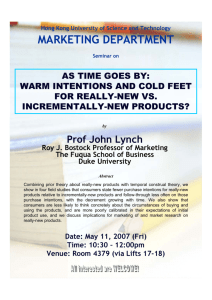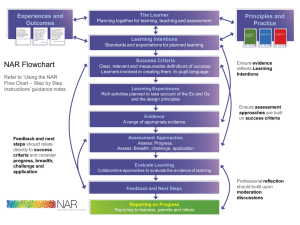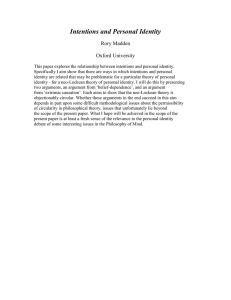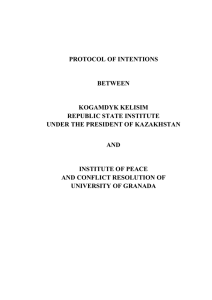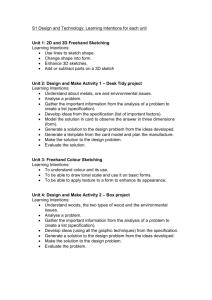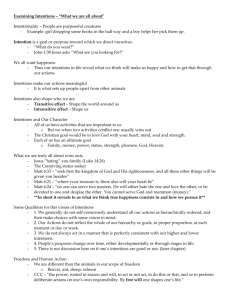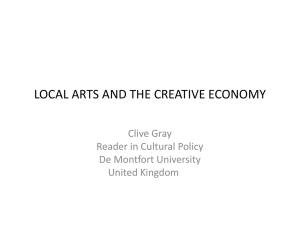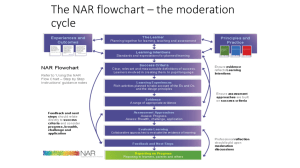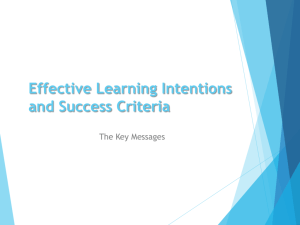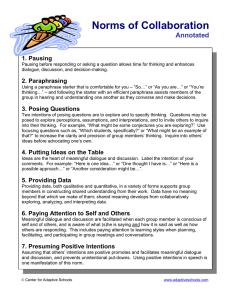AifL Part 2 - Learning is the Work
advertisement
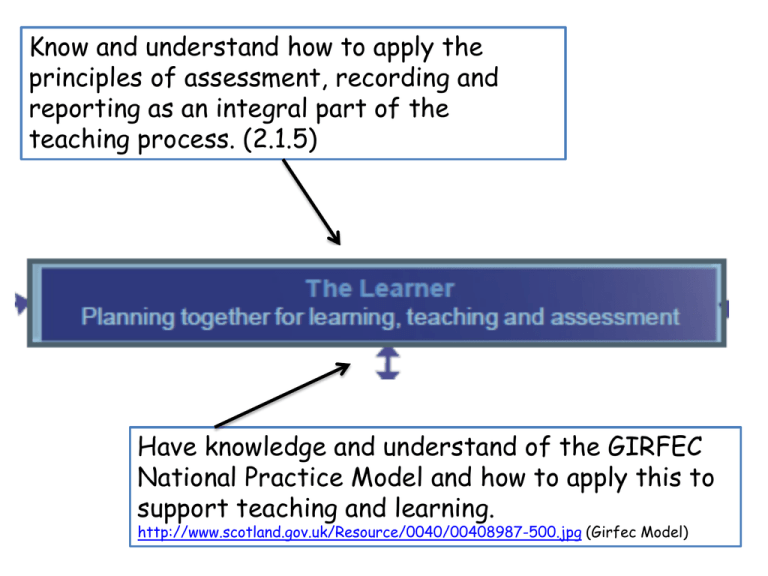
Know and understand how to apply the principles of assessment, recording and reporting as an integral part of the teaching process. (2.1.5) Have knowledge and understand of the GIRFEC National Practice Model and how to apply this to support teaching and learning. http://www.scotland.gov.uk/Resource/0040/00408987-500.jpg (Girfec Model) Communicate the purposes of the learning and give effective explanations at the appropriate levels for all learners. (2.1.5) Systematically develop and use an extensive range of strategies, approaches and associated materials for formative and summative assessment purposes. 3.3.1 Assessment procedures should be appropriate to the needs of all learners and the requirements of the curriculum and awarding and accrediting bodies. 2.1.5 Create opportunities to stimulate learner participation in debate and decision making about issues which are open-ended, complex, controversial or emotional. 3.3.1 Have extensive knowledge and a secure understanding of the principles of assessment. 2.1.5 The use of assessment in reviewing progress in improving teaching and learning, identifying next steps and the need to produce clear, informed and sensitive reports. 2.1.5 5 key Strategies • Sharing Learning Intentions • (Clarifying and sharing learning intentions and criteria for success) • Questioning • (Engineering effective classroom discussion, questions and learning tasks that elicit evidence of learning) • Feedback • Self Assessment • Peer Assessment In this session We Are Learning to… • understand what learning intentions and success criteria are; • be able to identify and frame learning intentions and success criteria • use a range of AiFL strategies from the AiFL toolkit • frame a variety of questions to promote higher order thinking skills. Learning Intentions and Success Criteria Why Are Learning Intentions and Success Criteria Important? • ‘If learners are to take more responsibility for their own learning, then they need to know what they are going to learn, how they will recognise when they have succeeded and why they should learn it in the first place.’ • (An Intro to AfL, Learning Unlimited, 2004)
